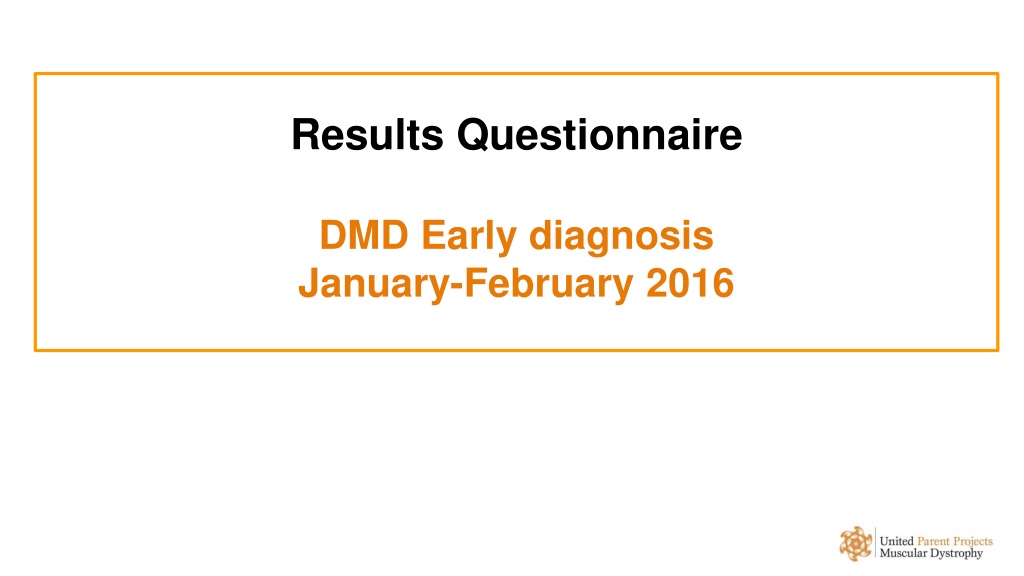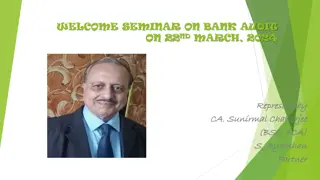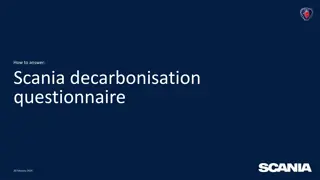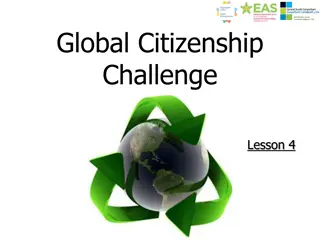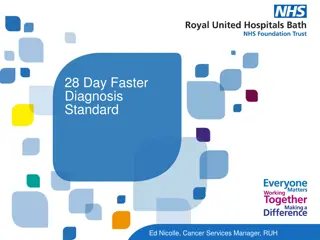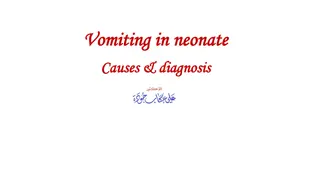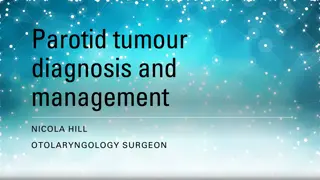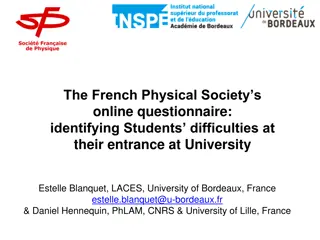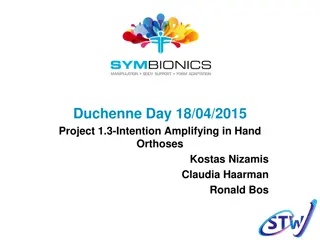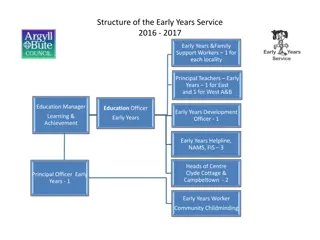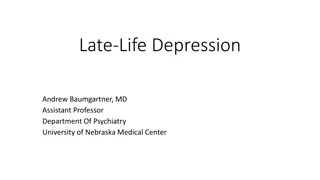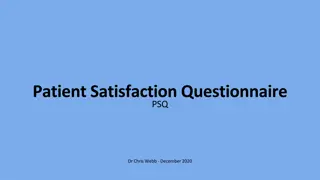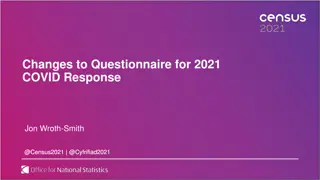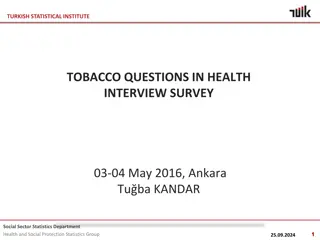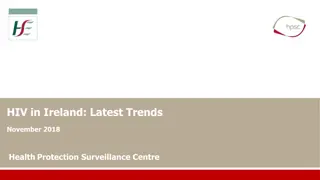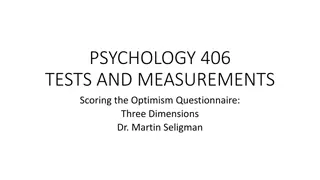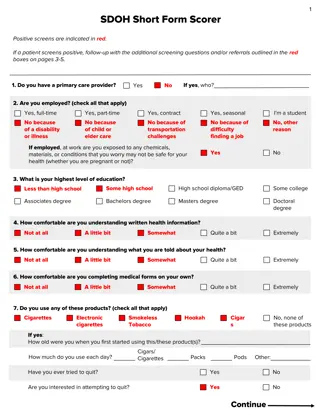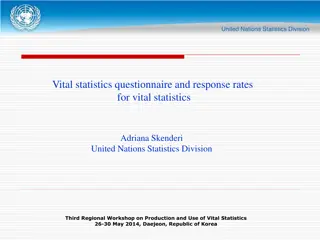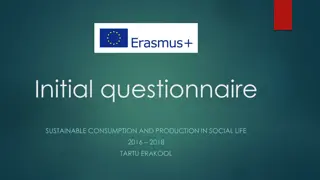Insights from DMD Early Diagnosis Questionnaire - January & February 2016
Detailed findings from a questionnaire on Duchenne Muscular Dystrophy (DMD) early diagnosis in various countries: average age of DMD diagnosis, medical programs for young children, first person to detect issues, duration between concerns and diagnosis, diagnosis makers, parental information reception, and knowledge of son's mutation. The Netherlands stands out in several aspects.
Download Presentation

Please find below an Image/Link to download the presentation.
The content on the website is provided AS IS for your information and personal use only. It may not be sold, licensed, or shared on other websites without obtaining consent from the author. Download presentation by click this link. If you encounter any issues during the download, it is possible that the publisher has removed the file from their server.
E N D
Presentation Transcript
Results Questionnaire DMD Early diagnosis January-February 2016
Responded countries Argentina Australia (2x) Belgium Cyprus Czech republic Denmark (2x) France Germany Greece India Kenya Mexico (2x) Netherlands Romania Spain (2x) Switzerland (2x) Syria United Kingdom(2x) USA
What is the average age DMD children are diagnosed in your country? the Netherlands: 4,5 years
Do you have a program in your country where all young children undergo medical and developmental tests on a regular basis? 52% 40% 8% Yes (the Netherlands) No Don t know
What is the most heard first person to discover something is wrong? 0% 4% 8% 76% Pysiotherapist Pediatrician School Parents (the Netherlands) 12% - - Other: Very different Parents and School (inc Nursery School from age of 2). Of course parents/family know first. Patient are not visited until after a problem has been detected. Sometimes it is a teacher pointing out a delay. - -
How long does it, on average, take between the first concerns and the diagnosis? the Netherlands: 15 months
Who typically makes the diagnosis? the Netherlands: Pedriatric neurologist
How do parents receive the information about the diagnosis? the Netherlands: Personal consultation
Do parents know the mutation of their son? Do they receive a written confirmation? Do parents receive a 'family letter' to inform family members about the risk of being carrier? 36%: Yes, parents know the mutation, receive a written confirmation but they don't receive a 'family letter' 20%: Yes, parents know the mutation but don't receive a written confirmation. They don't receive a 'family letter. 16%: Yes, parents know the mutation, receive a written confirmation and a 'family letter' the Netherlands: Yes, parents know the mutation, receive a written confirmation and half of the parents receive a family letter. 12%: No, parents don't know the mutation. They don' t receive a written confirmation and 'family letter' 16%: Other: - This is also very different, there's no common procedure. Typically all the above can apply as the process varies from area to area. Also some parents can be confused by the information and not fully understand. -
Is there a NBS (new born screening) program for DMD in place in your country? 80% 8% 4% 8% - No (the Netherlands) Don t know Yes Other: In some clinics they have it, but most of the clinics do not screen new born babies. No, only in families that already have a child with DMD. -
What would you suggest to improve early diagnosis in your country? the Netherlands: NBS for DMD
